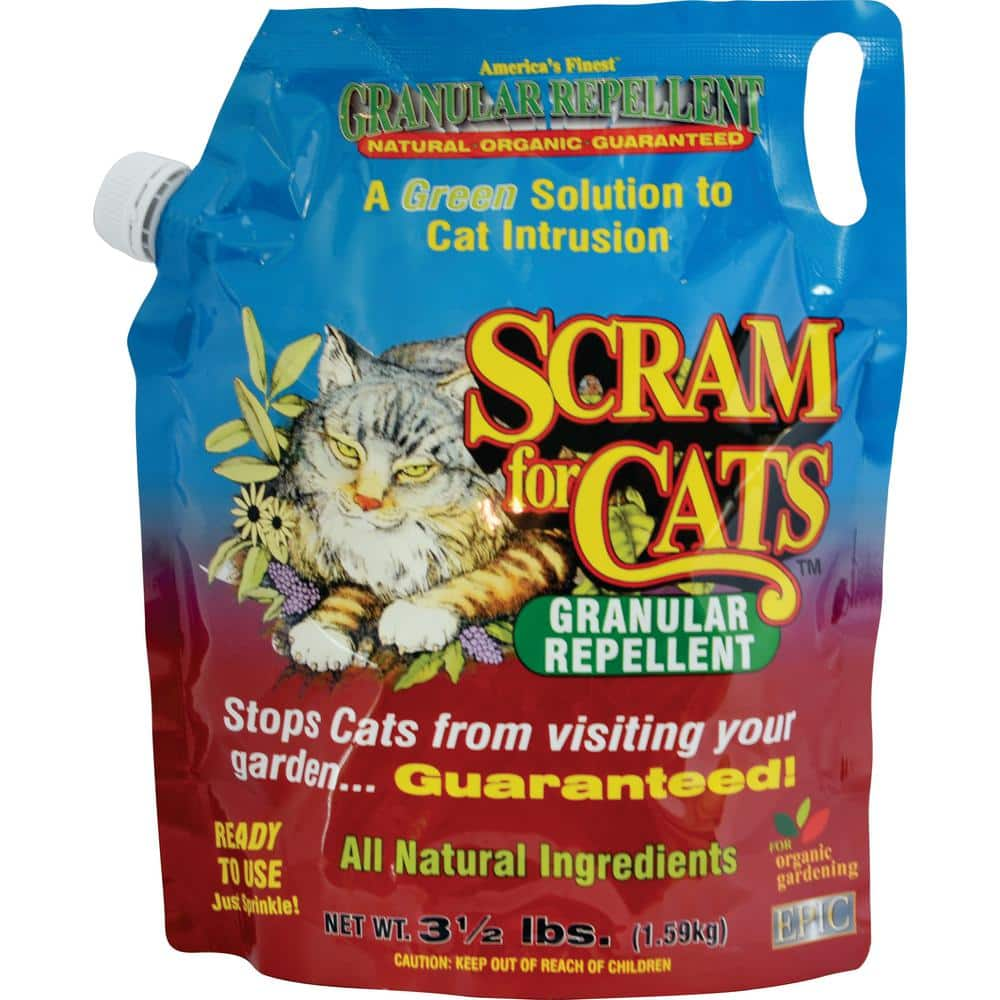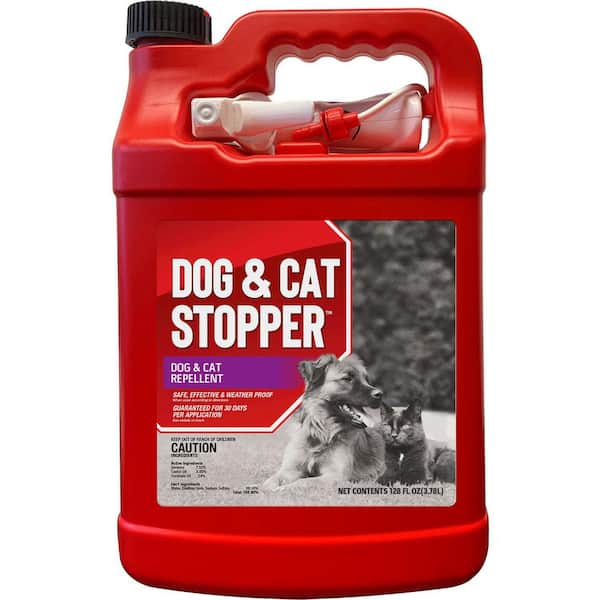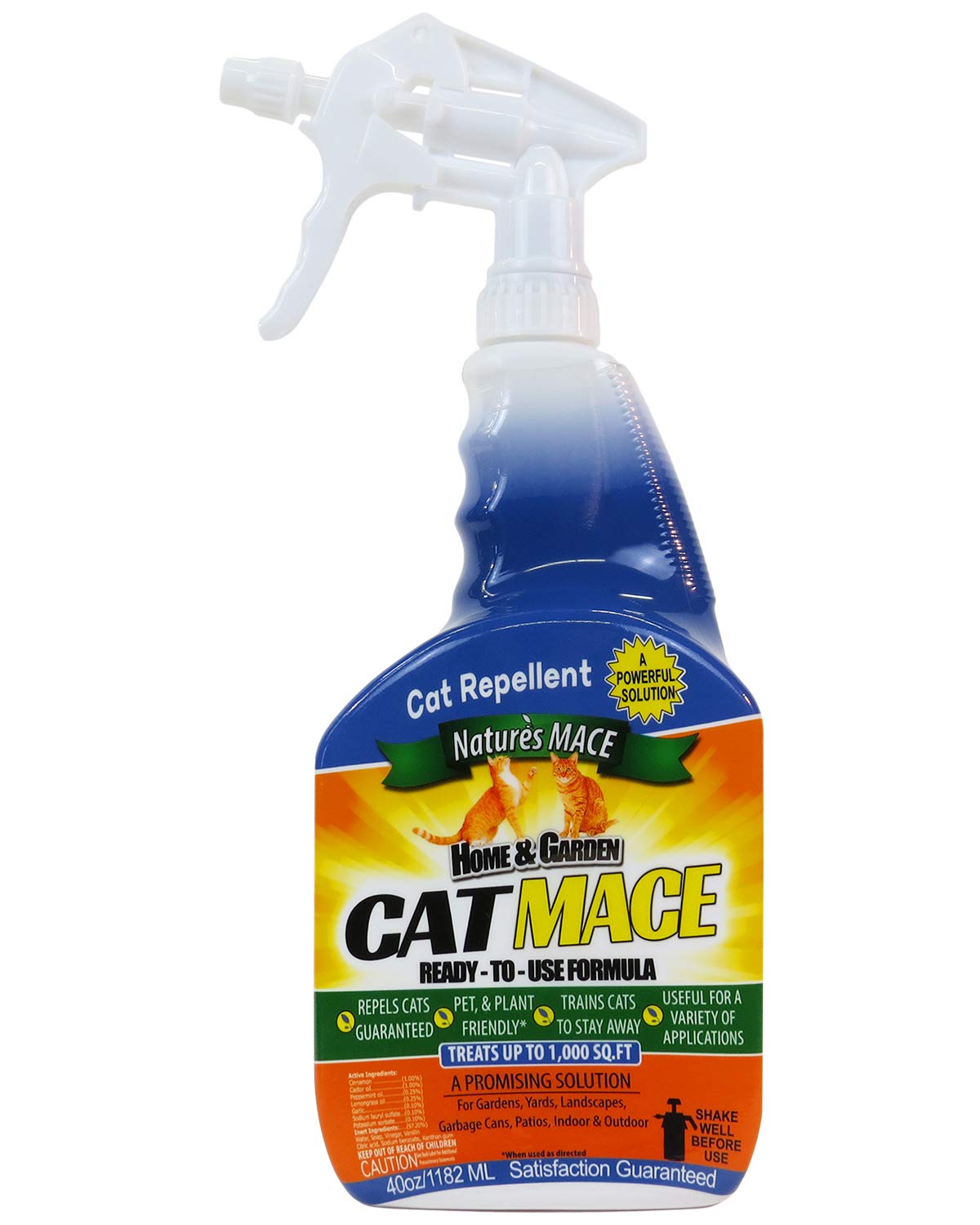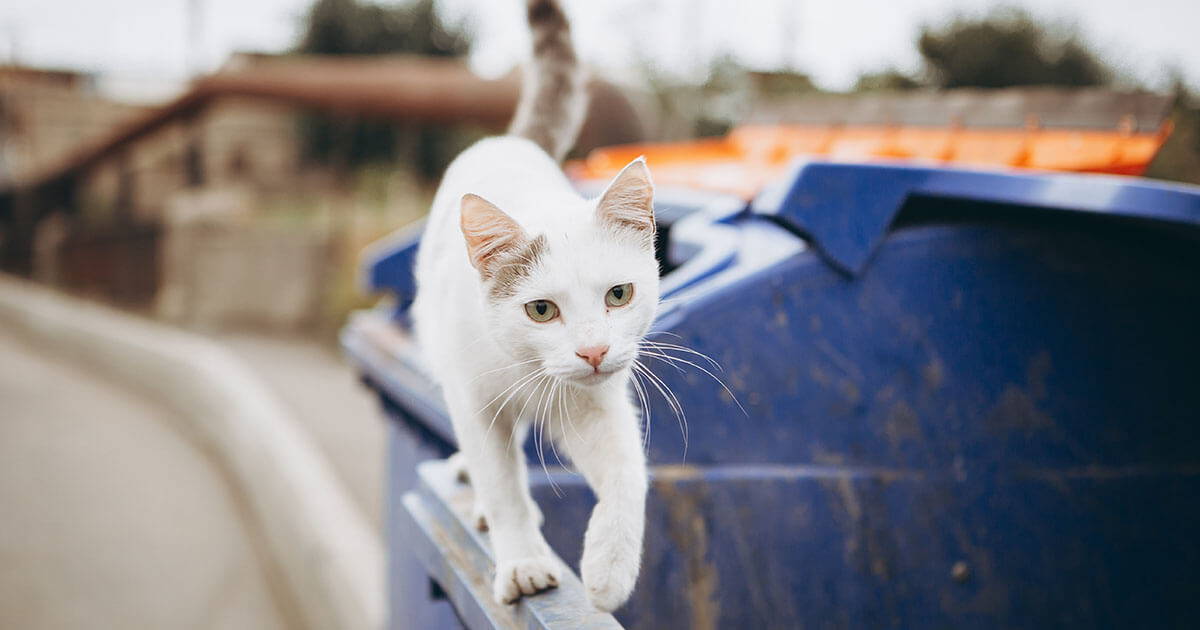To stop a stray cat from spraying your front door, make the area less appealing and use deterrents. Employ scents that cats dislike and maintain a tidy entrance.
Stray cats often spray front doors to mark their territory and signal other felines. This behavior can result in unpleasant odors and a messy doorstep. Homeowners seeking solutions require effective strategies that ensure their front spaces remain free from feline marking behaviors.
Key methods involve thorough cleaning to remove existing scents and strategically placing deterrents to prevent future incidents. It’s essential to understand that the goal is to discourage the cat without causing harm. Using natural repellents can serve as a gentle yet efficient way to keep stray cats at a distance. Through consistent application of these techniques, individuals can maintain a clean and welcoming front door area.

Credit: www.amazon.com
The Pungent Problem: Stray Cat Spraying
Do you find a sharp, unpleasant smell near your front door? Stray cats might be the culprits. The pungent aroma of cat spray is never welcome. But don’t worry, we can tackle this together. Read on to understand why stray cats spray and how we can prevent it.
Identifying The Reasons Behind Feline Marking
Why do stray cats spray? To put it simply, they mark their territory. It’s not just about the space they walk; it’s about communicating with other felines. They may feel threatened by other cats, or they’re looking to attract mates. Sometimes, they spray because they are stressed. Knowing these reasons is the first step to solving the issue.
- Territorial Claims: Marking ownership of their space.
- Mating Calls: Leaving signals for potential partners.
- Stress Response: Reacting to environmental changes or threats.
How Spraying Differs From Other Forms Of Cat Urination
Think all cat pee is the same? Not quite. spraying is a form of communication, different from regular urination. When cats spray, they stand up and release urine on vertical surfaces. It’s a clear message to other cats. In contrast, regular urination is simply a part of their daily routine, done in a squatting position on horizontal surfaces. Spotting the difference helps us address the problem effectively.
| Spraying | Regular Urination |
|---|---|
| Vertical Surfaces | Horizontal Surfaces |
| Standing Position | Squatting Position |
| Communication Signals | Daily Routine |

Credit: www.homedepot.com
Home Front Battlefield: Protecting Your Door
Stray cats marking their territory can be a real hassle, especially when your front door becomes their target. It’s no secret that cats are territorial creatures. Your doorstep may unwittingly become a battleground for feline friends. Your mission: reclaim and protect your space.
Initial Steps To Deter Stray Cats
Act quickly and decisively to convince stray cats that your door is off-limits. Here are proven strategies to keep them at bay:
- Avoid feeding stray cats near your door.
- Install motion-activated sprinklers to startle and ward off feline visitors.
- Use natural repellents like citrus peels or essential oils around your entryway.
- Block access to cozy shelter spots where cats might hide.
The Role Of Cleanliness In Prevention
Maintaining a clean front area is critical. Odor removal is essential. Here is a step-by-step guide:
- Clean the sprayed areas with a biological or enzyme cleaner to remove lingering scents.
- Regularly wash the door and surrounding areas with soapy water.
- Restrict access to the doorstep with plants that cats dislike, like lavender or rosemary.
- Ensure your trash cans are secure and inaccessible, as they can attract cats looking for food.
Diy Repellents: Homemade Solutions
Are you dealing with a persistent stray cat spraying your front door? No need to worry. You can make repellents at home with easy-to-find ingredients. These homemade potions can discourage cats from marking your entryway. Let’s dive into the natural ingredients cats dislike and learn how to create effective mixtures.
Natural Ingredients That Cats Dislike
Scent plays a huge role in a cat’s life. Several natural ingredients can keep cats away:
- Citrus: Lemons, limes, and oranges are great repellents.
- Lavender: Its soothing scent for humans repels cats.
- Mint: Minty freshness is unpleasant to cats.
- Eucalyptus: Its sharp smell is off-putting to felines.
- Coffee grounds: Cats dislike their bitter smell.
- Vinegar: Its strong odor deters cats effectively.
Creating Effective Mixtures
To make a repellent:
- Mix ingredients: Combine water with disliked scents.
- Boil and cool: Enhance strength by boiling, then let it cool.
- Fill a spray bottle: Transfer the mixture into a bottle.
- Spray strategically: Target the front door and its vicinity.
Mixing these natural repellents can create a cat-free zone without harming them. Consistency is key. Reapply after rain or weekly to maintain effectiveness. Keep your entryway cat-spray-free with homemade solutions!
Commercial Deterrents: What Works?
Stray cats marking their territory on your front door can be frustrating. Finding the right product to stop them is crucial. Commercial deterrents offer various solutions. Some use motion-activated bursts of water; others emit ultrasonic sounds. Let’s explore which of these products work best to keep your front door free from feline graffiti.
Pros And Cons Of Various Products
| Product Type | Pros | Cons |
|---|---|---|
| Motion-Activated Sprinklers | Effective at startling cats away. Eco-friendly as it uses water. | May accidentally activate with other movement. Can get pricey. |
| Ultrasonic Devices | Humane, sound-based deterrent. Battery-operated and portable. | Some cats may ignore ultrasonic sounds. Can affect other animals. |
| Citrus Sprays | Cats dislike citrus smell. Natural and safe for the environment. | Requires frequent reapplication. May not work on all cats. |
Recommendations And Reviews
Real-life experiences guide us to the products worth trying. Let’s look at what people say.
Sentinel Motion-Activated Sprinkler
- Rating: 4.5 out of 5
- Success stories: Many users report it stops cats effectively.
- Some note it’s too sensitive to other movements.
Purrfect Ultrasonic Repellent
- Rating: 4 out of 5
- Reviews: Praised for portability and easy installation.
- May not affect every stray cat.
Citrus Defense Spray
- Rating: 3.5 out of 5
- Feedback: Loved for its natural approach.
- Reapplication is necessary, especially after rain.
Selecting the right product takes trial and error. Consider your environment and the stray cat’s behavior. A combination of approaches often yields the best results.
Long-term Strategies: Beyond The Quick Fix
Long-Term Strategies: Beyond the Quick Fix tackle the stray cat spraying issue at the source. Quick fixes might seem effective, but they usually do not last. Stopping this behavior requires a thoughtful approach that involves environment adjustments and community action. Here we explore initiatives that foster lasting solutions.
Modifying The Environment To Keep Strays Away
Environment modification is a powerful tool in preventing stray cat issues.
- Remove attractants: Ensure no food leftovers are around. This deters cats from gathering.
- Use deterrents: Non-toxic repellents can keep cats at bay.
- Secure trash: Well-sealed bins prevent cats from scavenging.
- Block access: Barrier systems like fences dissuade cats from entering properties.
Community Initiatives For Stray Cat Management
Community-driven efforts play a critical role in managing stray cat populations effectively.
- Trap-Neuter-Return (TNR) programs: They control population growth.
- Education campaigns: They teach about responsible pet ownership.
- Adoption drives: They help find homes for strays.
- Volunteer networks: Community members can monitor and care for stray cats.

Credit: www.homedepot.com
Understanding Feline Behavior For Lasting Solutions
Unwanted stray cat spraying at your front door isn’t just unpleasant; it’s a cry for help and attention. Cats communicate through their behavior, and spraying is no exception. Understanding why they exhibit these actions is key to creating lasting solutions. It’s not just about deterring the behavior. It’s about addressing the needs and instincts that drive it.
How Behavioral Training Can Help
Behavioral training involves using positive reinforcement. It encourages desired behaviors in cats. Techniques include:
- Redirecting focus: Offering alternatives to the front door, like a cat post.
- Using deterrents: Safe sprays that discourage cats from revisiting the spot.
- Consistency: Regular training to reinforce good habits.
Behavioral training doesn’t just stop spraying. It promotes a healthy relationship between strays and your home environment.
Coexisting With The Feral Feline Population
Stray and feral cats are part of many neighborhoods. Understanding their needs can lead to peaceful coexistence. Consider implementing:
- Feeding stations: Set up away from your home to attract cats to a different area.
- Shelter areas: Provide shelter in safe spots to reduce wanderlust near your front door.
- Spay and neuter programs: Participate in or initiate programs to control the feral population responsibly.
Respectful coexistence with feral cats can reduce front door spraying. Community efforts make a significant impact.
Frequently Asked Questions Of Stop Stray Cat Spraying Front Door
How Do I Stop Stray Cats From Peeing On My Front Door?
To stop stray cats from peeing on your front door, use a motion-activated sprinkler, apply cat-repellent sprays, or scatter citrus peels. Ensure the door area is clean and odor-free to deter future marking.
Why Do Stray Cats Spray My Front Door?
Stray cats typically spray front doors to mark their territory and communicate with other cats. This behavior stems from instinctual needs to establish dominance or signal reproductive availability.
How Do I Keep Stray Cats From Spraying My Porch?
To deter stray cats from spraying your porch, use citrus-scented sprays, install motion-activated sprinklers, or spread natural repellents like coffee grounds. Ensure garbage lids are tightly sealed and block off potential shelter areas to make the porch less appealing.
How Do You Stop A Stray Cat From Spraying Indoors?
To stop a stray cat from spraying indoors, neuter the cat, use enzymatic cleaners on sprayed areas, and limit the cat’s view of outside cats that could trigger spraying behavior. Provide a stress-free environment, and consider pheromone diffusers to calm the cat.
Conclusion
Dealing with a stray cat marking your entryway can be frustrating. Nonetheless, by employing deterrents, using repellents, or seeking professional help, you can resolve this issue effectively. Remember, patience and consistency are key. Secure your front door’s cleanliness, and embrace a spray-free environment, starting today.

